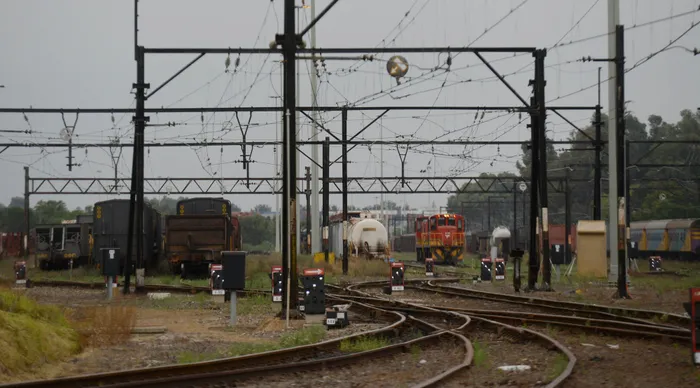Incompetent leadership, lawlessness derail Transnet

Picture: Armand Hough / African News Agency (ANA) – When the post-apartheid government decided to rename the South African Railways and Harbours to Transnet, not only did it change the name, but it also lost an efficient railways system, which was vital for the economy of the country, the writer says.
By Bonke Dumisa
I was asked to comment on remarks by some top economists and other people that the “collapse of Transnet has cost the South African economy over R3.1 trillion”. Some people have said the comments were exaggerated and outright scaremongering.
It is not an exaggeration. It is true that when the new ANC-led majority government took over after the historic first post-apartheid democratic elections on April 27, 1994, it threw the baby out with the bathwater in many instances.
The South African Railways and Harbours was the apartheid government entity tasked with matters related to railways and trains. If you go to any of the major cities in South Africa you will notice that Durban, Cape Town, Johannesburg, Pretoria, Bloemfontein and even Empangeni and Richards Bay were and are anchored on the sophisticated major railway networks. Despite the entity being an apartheid structure, we must accept that it was efficient and reliable, far more so than Transnet.
The main mode of transport from one major town to another was mostly the train. I remember my first trip by train to the University of Zululand, in KwaDlangezwa which is part of Empangeni. The whole trip took me about eight hours from Durban Station to Felixton Station in Empangeni. That trip included at least one hour at Gingindlovu Station where the train changed its driver’s coach from an electric train to a coal-steam train.
We must, however, accept that in this case, spending more than eight hours on a train from Durban to Empangeni was not the best way of moving from one town to another, especially because it takes less than two hours to drive from Durban to the University of Zululand. It was therefore good for the South African economy to have the taxi industry step in and take over the passenger business from the railways and trains.
But, while it makes a lot of sense that the railways and trains lost a lot of passenger business to the taxi industry, in cases like my eight-hour train trip from Durban to Empangeni, it is true that when the post-apartheid majority government decided to rename the South African Railways and Harbours to Transnet, not only did it change the name, it lost the plot on why an efficient railway system is important in South Africa. There are many goods which can be best transported by trains instead of by road. Almost all mining products, like coal, were transported strictly by train.
Most mining goods are now mostly transported by huge trucks. This causes a lot of damage to the road networks such as potholes that cost the South African economy billions of rand a year. Previously, newly built or assembled cars were almost solely transported by trains to various parts of the country. It is no longer the case.
Most of us know the great inconvenience we face when we are delayed by the huge numbers of multiple-car carriers that hog most national roads. It was not the decision of the motor car companies to shift their movement of cars from the railways to the road networks; they were forced to do this because of a combination of Transnet’s inefficiencies and the rising lawlessness in South Africa which has seen a lot of railway networks being invaded by communities that have rendered such railway networks unfit for purpose.
Moving transportation of cars from rail to road has added to damage to the road network. This has proved to be costly to the economy. The same can now be said about many previously efficient intra-city rail systems that have collapsed and forced many poor train users to shift to expensive taxis. You must now do your own calculations, to see how many opportunities and how much money Transnet has directly lost to see why some are saying Transnet costs the economy at least R366 billion a year and poses a R3.1-trillion risk to the South African economy.
Prof Bonke Dumisa is an independent economic analyst